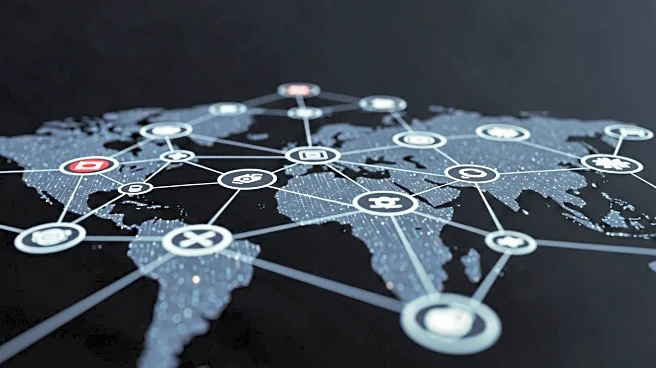What's Happening?
North Korean nationals are increasingly infiltrating global industries by concealing their identities to secure remote employment, according to a report by Okta Threat Intelligence. The scheme, initially perceived as a U.S. technology industry issue, has expanded to include finance, healthcare, manufacturing, and public administration sectors worldwide. Okta's research, based on over 130 identities linked to more than 6,500 job interviews across 5,000 companies, highlights the regime's strategy to exploit remote work opportunities for financial gain. The report indicates a significant global expansion, with 27% of targeted roles now outside the U.S., including countries like the UK, Canada, and Germany.
Why It's Important?
The expansion of North Korea's IT worker scheme poses a significant threat to global industries, potentially compromising sensitive data and financial systems. As North Korean operatives refine their infiltration methods, they exploit hiring pipelines and bypass basic screening controls, increasing the risk of economic and security breaches. This development underscores the need for enhanced international collaboration and stringent vetting processes to protect against such threats. The scheme's global reach highlights vulnerabilities in remote work environments, necessitating robust cybersecurity measures across industries.
What's Next?
As awareness of the threat grows, governments and private sectors are likely to intensify efforts to identify and disrupt North Korean operations. Companies worldwide may need to implement stricter hiring protocols and enhance cybersecurity measures to prevent infiltration. The U.S. and its allies could increase sanctions and legal actions against entities involved in the scheme. Additionally, international cooperation may be strengthened to address the broader implications of North Korea's cyber activities.









